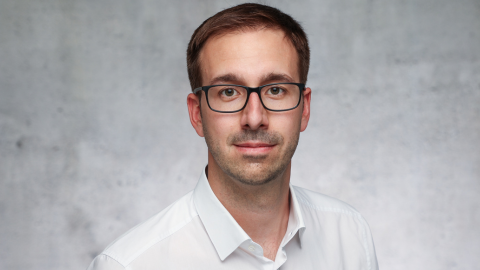Interview to Frank Haberstroh, J.D. ex-student and Financial Sanctions Specialist at UNU-CPR's FAST initiative

Frank Haberstroh has granted us an interview as a former PhD student in Law and Financial Sanctions Specialist with the Finance Against Slavery and Trafficking (FAST) at the United Nations University - Centre for Policy Research (UNU-CPR).
07/06/2023
"Practice needs analysis and approaches to scientifically sound solutions"
Frank Haberstroh holds a PhD in Law from the UAB and is currently working as a Financial Sanctions Specialist in the FAST initiative at the United Nations University - Centre for Policy Research (UNU-CPR).
Frank has granted us an interview in which he explained what this PhD has been useful for him and what his current work consists of.
INTERVIEW
1. What is your professional profile?
I studied law at the University of Freiburg. In Germany, you finish your law degree with a state examination, which qualifies you for a two-year practical training. The different training stations I chose had a clear focus on commercial criminal law.
Criminal Law has always been my favourite field. At the same time, I studied a distance learning master's degree in security, defence and geostrategy. In my doctoral thesis, which focuses on criminal treatment and compliance measures related to the financing of weapons of mass destruction, I was able to combine the content of the two studies.
I am very grateful that the UAB -and especially my tutor, Professor Miriam Cugat, has been open to such an exotic subject.
2. Which is your professional experience?
After finishing my legal training, I did a six-month internship at the United Nations Office on Drugs and Crime in La Paz, Bolivia. Afterwards, I started working as a consultant at Deloitte, where I was offered a flexible work schedule so that I could pursue my doctorate in parallel.
After two years of consulting, I moved to the Financial Anti-Crime department of a bank. This bank is a member of a public-private partnership to fight against financial crime, and I had the opportunity to lead a project on the financing of human trafficking involving various financial institutions and the German Federal Police. As part of the project, we collaborated with various United Nations agencies, which is how I first met the FAST initiative of the United Nations University, my current place of work.
3. What does your current work consist of?
FAST is short for "Finance Against Slavery and Trafficking" and it is about doing exactly what the name implies: activating the financial sector in the fight against human trafficking. We participate in legislative processes around the world, in the area of financial inclusion of groups vulnerable to trafficking and in the identification of trafficking cases through financial investigations. As an expert in anti-money laundering and sanctions, I am particularly involved in the latter area.
4. How would you describe your day-to-day at work?
My day-to-day is characterized by many trips and online meetings with representatives of governments, police authorities and financial industries around the world. For example, to organize and hold round tables with the financial sector of a given country, which serve to raise awareness of the risks of human trafficking and provide the financial sector with the tools to identify and prevent these crimes.
Furthermore, as a direct result of our work, public-private partnerships have been established between the financial industry and the authorities of the respective countries, which have made a long-term commitment to the fight against human trafficking. As the UNU is the think tank of the United Nations, it is also part of my daily work to advise other United Nations agencies on relevant issues and to write reports and briefing notes to help provide innovative solutions to the challenges of combating human trafficking through the financial industry.
5. What do you think it was useful to do your PhD?
Doing my PhD was a very enriching experience, both professionally and personally. The knowledge and theories that I have deepened in my thesis, especially those related to the fight against money laundering and the application of sanctions, determine the way in which I now look at the practical problems for which I have to develop solutions. Furthermore, I have learned to structure complex thoughts with clarity, and to motivate and organize myself in an autonomous way in order to complete a long-term project.
6. What advice would you give to students who will start their PhD in Law this academic year 2023-24?
To look for a subject they are passionate about. I believe that true quality can only come from a certain passion for the subject they are working on. For those who want to do a PhD while working, I can only advise them to choose a topic that has proved to be problematic in their work practice and to try to analyse it academically. Practice needs analysis and approaches to scientifically sound solutions. Just as the academic world requires contributions from practice when it comes to identifying issues of current relevance.